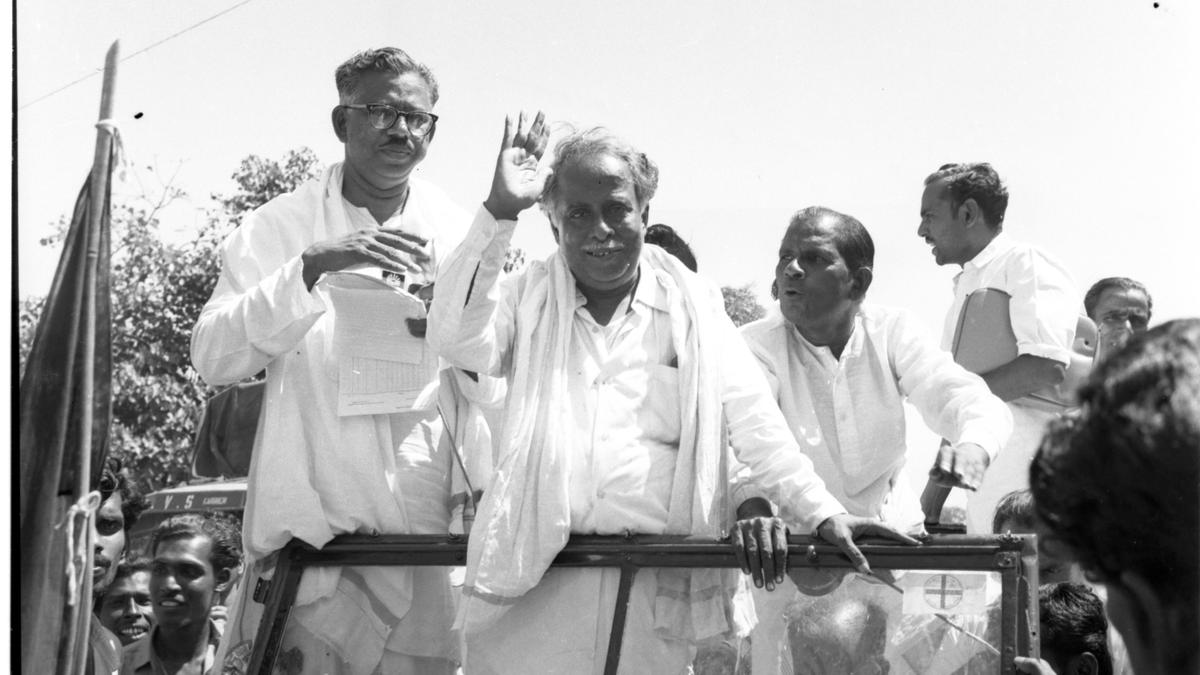:
The accidental fall of a security guard onto the tracks at the newly-inaugurated Ragigudda Metro Station on the Yellow Line in Bengaluru on August 25 has raised concerns about both the working conditions of guards deployed at Namma Metro stations and the absence of adequate safety barriers, such as platform screen doors (PSDs).
A security guard at #BengaluruMetro had a close call on Monday morning when he accidentally fell onto the train tracks at the Ragigudda station on the newly opened Yellow Line. Following the incident, the guard was relieved from duty, and an internal inquiry has been initiated to… pic.twitter.com/qhLR2C33U2
— The Hindu (@the_hindu) August 26, 2025The Hindu reported that a 52-year-old guard, deployed at Ragigudda, fell due to exhaustion allegedly after working for nearly 16 hours with only a short break for rest before reporting back for duty. Sources in Bangalore Metro Rail Corporation Limited (BMRCL) confirmed to The Hindu that the guard had been clocking long hours prior to the incident.
Guards overworked and sleep-deprived
A number of guards, most of whom are deployed through private agencies or the Karnataka Home Guards, told The Hindu that long shifts are not uncommon. Many of them work extra hours to earn a higher income, but at the cost of sleep and basic rest.
“Most of us are sleep-deprived. On top of that, we have to stand continuously for hours, sometimes with very limited breaks, except to visit the washroom. It takes a toll on our health and concentration,” said one guard from a private security agency who is currently working at a metro station.
A home guard deployed at another metro station explained that the situation is particularly difficult during peak hours. “Guarding the platforms is quite challenging since we are required to stand in crowded spaces with constant passenger movement. The shortage of guards puts additional pressure on those already deployed,” he said.
A senior Karnataka Home Guards official told The Hindu that their personnel find metro duty especially tough. “Usually, whenever we allot home guards for metro duty, they hesitate a little since they have to be standing for hours. It is very strict. If a guard tries to sit for a while, it will be captured on CCTV cameras, and they will be questioned. Especially women guards find it very difficult during menstruation,” the official said.
The official added that home guards are often pulled out from metro duty during VIP movement or festivals when police require additional forces, leading to greater reliance on private security agencies.
Low pay drives guards to double shifts
Private security agencies, according to guards, pay low salaries. This compels many to work additional shifts or even moonlight to make ends meet.
“Those working with private agencies cannot survive on one shift. One night shift and one day shift fetches us around ₹20,000 to ₹25,000 a month. But doing only one shift gets us just about ₹15,000, which is too little to manage expenses,” said a guard who works with a private agency.
The Ragigudda incident has once again brought back discussions about whether Namma Metro should have its own dedicated security force, similar to the Railway Protection Force (RPF) in Indian Railways.
In 2019, then Director General and Inspector General of Police Neelamani Raju had written to BMRCL suggesting the creation of a special unit — the Karnataka State Industrial Security Force (KSISF) — with a strength of 1,350 personnel dedicated to metro security.
A BMRCL official said the proposal was dropped on the grounds of feasibility and cost. For now, metro stations continue to be secured by a mix of home guards and staff from private security agencies.
Platform safety under scrutiny
Beyond staffing and work condition issues, the Ragigudda incident has reignited debates around passenger safety on platforms. Despite repeated cases of passengers either accidentally falling onto electrified tracks or deliberately jumping, most stations still lack PSDs or adequate railings.
After past incidents, BMRCL had installed safety railings only at Nadaprabhu Kempegowda (Majestic) Interchange. More recently, on August 20, new barricades were put up at R.V. Road Interchange Station to manage passenger surge on the Yellow Line. R.V. Road has become just the second station in the network after Majestic to be equipped with railings to prevent accidental falls.
Hari Prasad, a commuter from Jalahalli, said, “Unlike many other metro systems, Bengaluru uses the third rail system. That means if someone falls, it is life-threatening because of the DC voltage running on the third rail. Platform screen doors need to be installed as soon as possible.”
Another commuter, Prasanth Kumar from Bommanahalli, said, “Screen doors are mandatory. I don’t know how this metro system was approved without such basic infrastructure, especially given the huge daily passenger volume of 10 lakh persons after the opening of the Yellow Line. BMRCL officials should at least have ensured this level of safety,” he said.
“The Ragigudda incident has highlighted two parallel challenges for Namma Metro: ensuring the well-being of guards who play a critical role in crowd control and passenger safety, and addressing the long-pending issue of installing platform barriers to prevent track-related accidents,” Mr. Kumar added.
The Hindu reached out to BMRCL for a response, but did not receive any.



.png)
.png)
.png)
















 14 hours ago
3
14 hours ago
3








 English (US) ·
English (US) ·